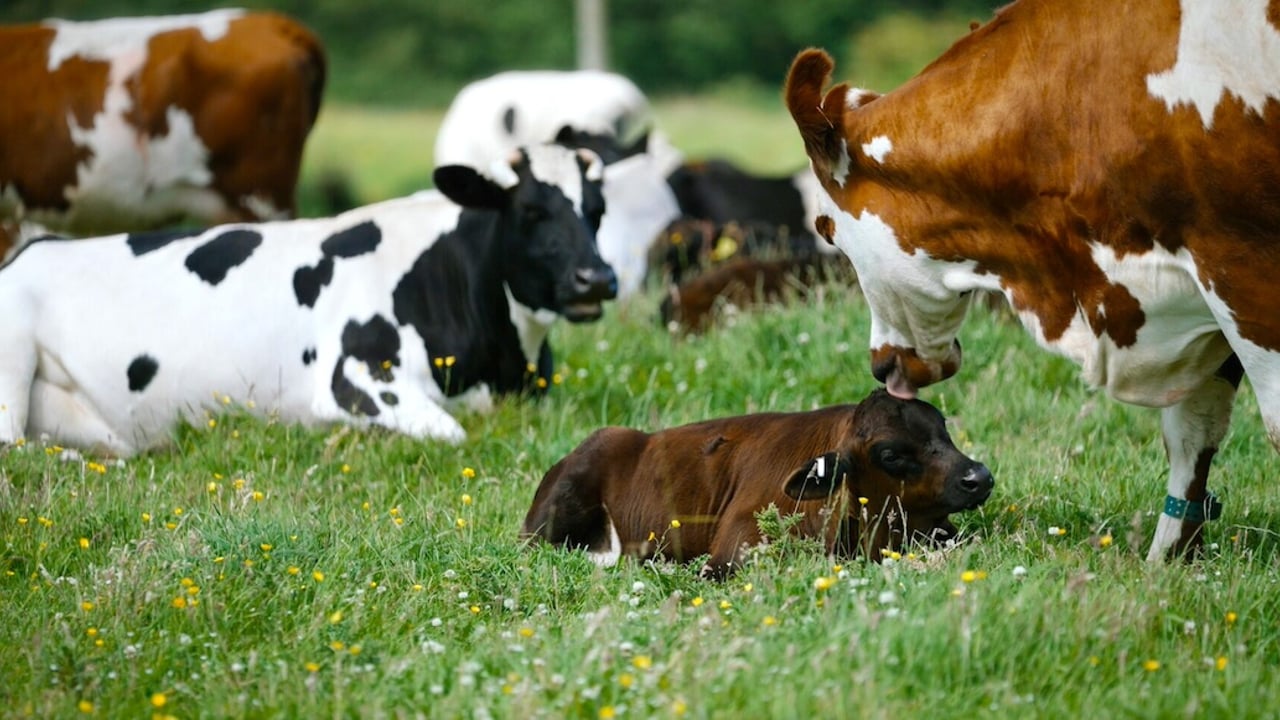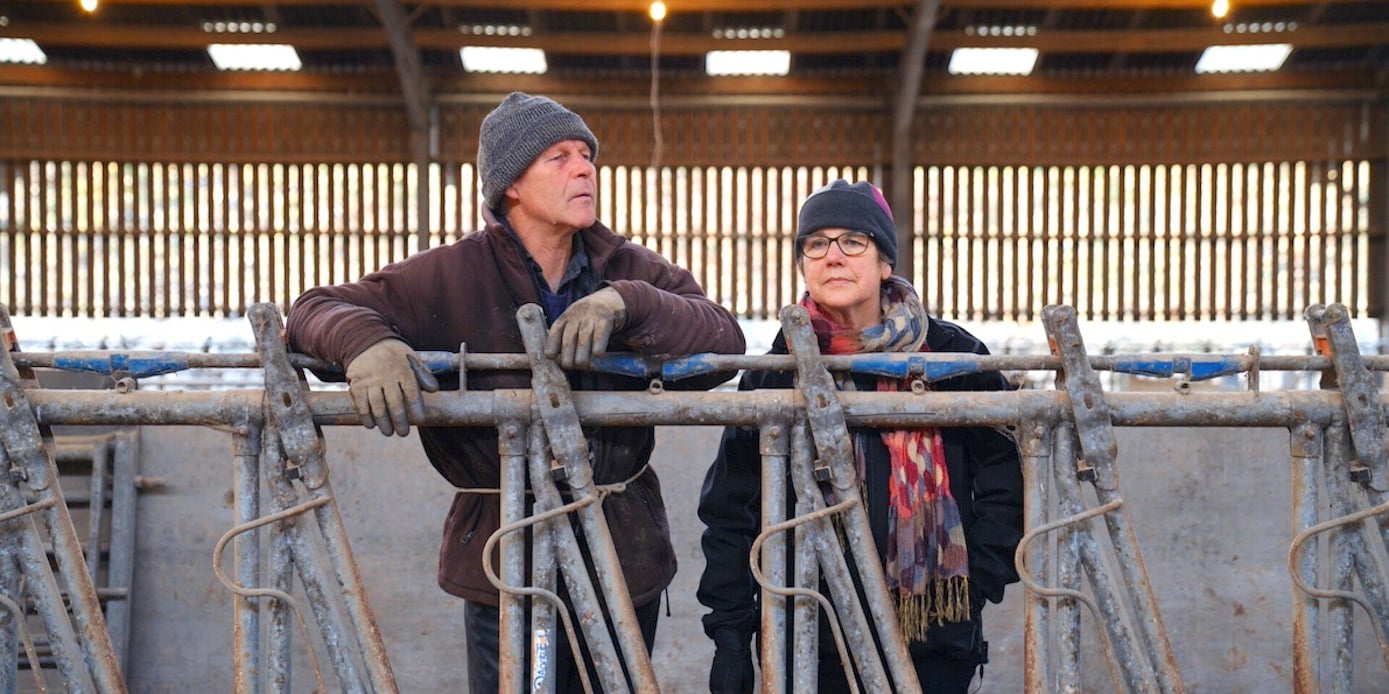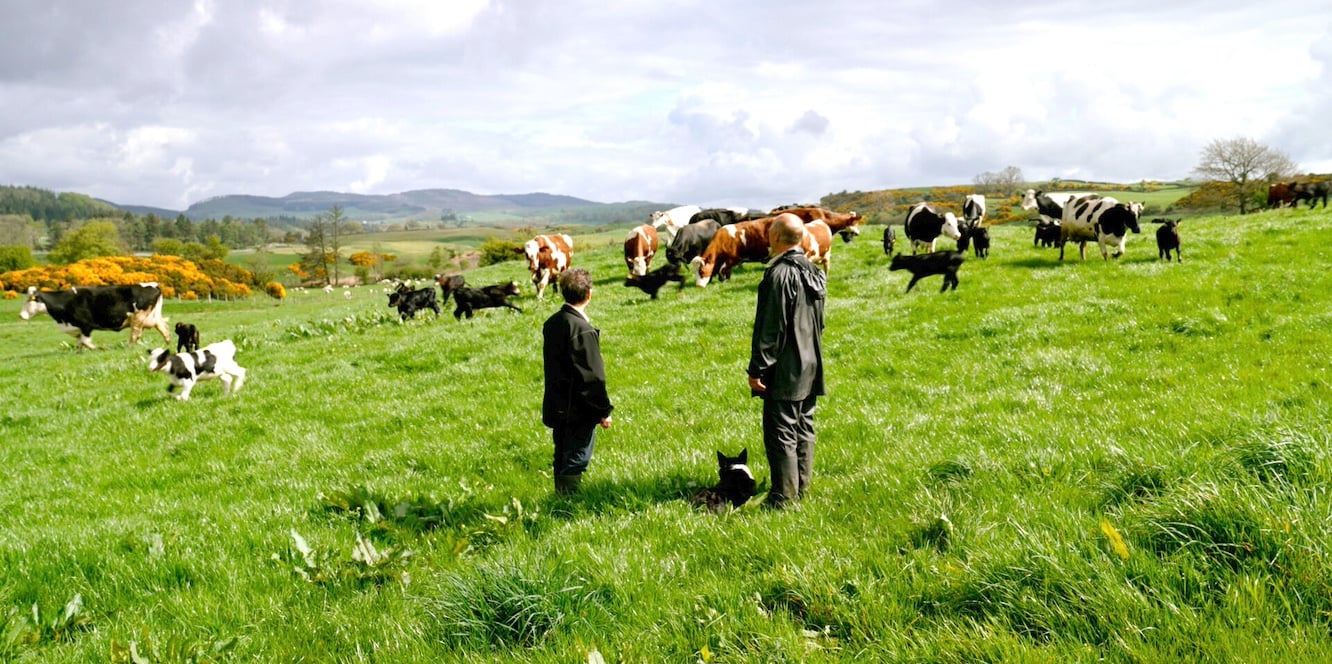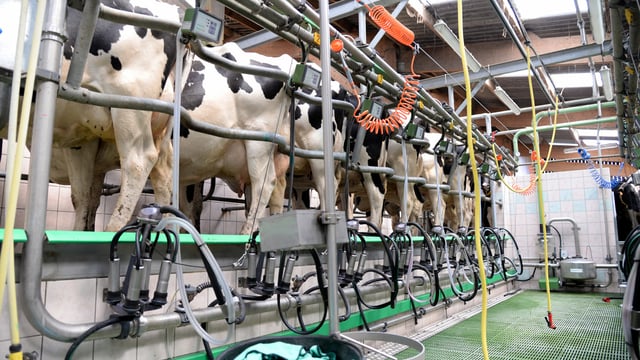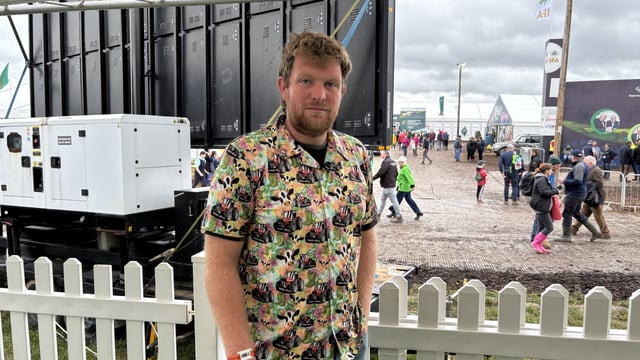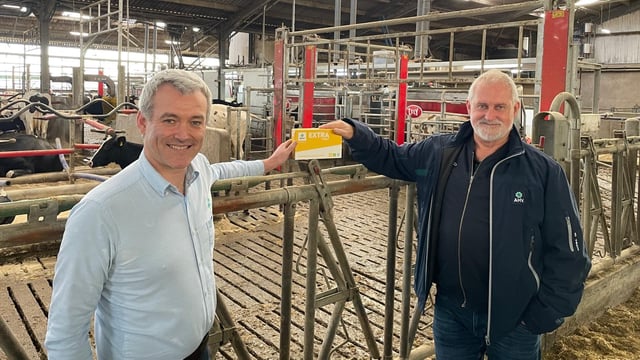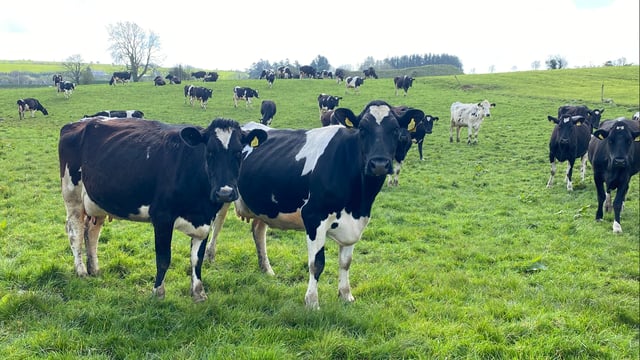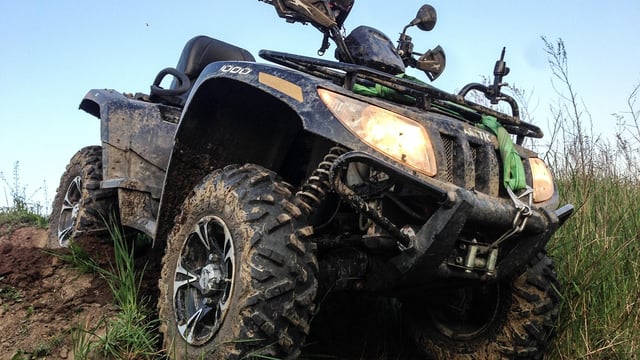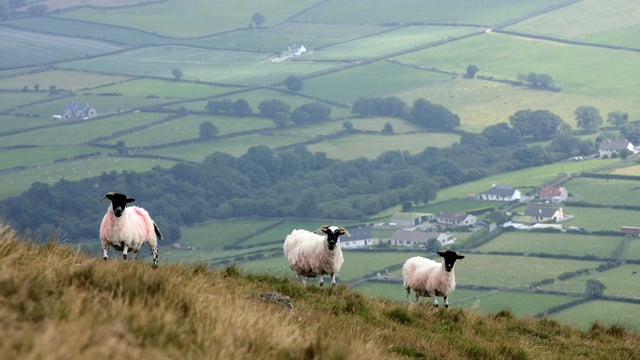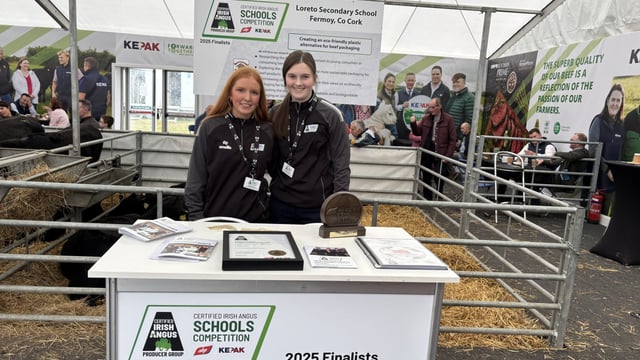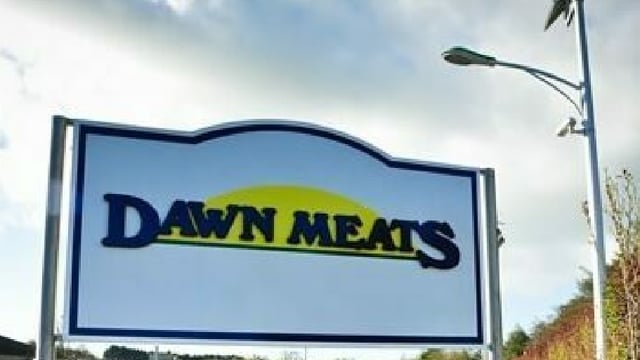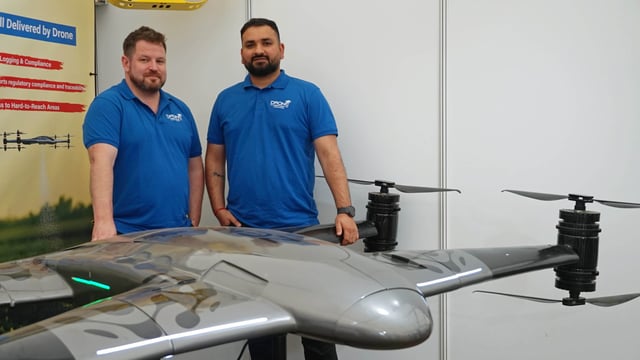Cow-with-calf initiative shows how things can be done differently
A documentary feature telling the story of a Scottish farm’s transformation from conventional to cow-with-calf dairy farming will have its world premiere at IndieCork Film Festival next month.
‘A Dairy Story’ will screen at the Arc Cinema in Cork city on Saturday, October 11 at 4:00pm as part of the festival.
The documentary follows David and Wilma Finlay of Rainton Farm in south-west Scotland, who spent two decades developing what became Europe's first commercially viable cow-with-calf dairy system.
Today, Rainton Farm sits at the centre of European efforts to transform dairy farming, with David Finlay serving on the advisory board of TransformDairyNet.
The €3 million EU-funded project, which is co-ordinated by University College Dublin (UCD), aims to promote cow-calf contact systems across Europe through a network of 26 partners including farmers, researchers, and industry experts.
Rainton Farm operates across 340ha in Galloway, milking 120 cows in a system that keeps calves with their mothers before weaning at five to six months, rather than the standard practice of separating them shortly after birth.
According to David Finlay, this regenerative approach to dairy farming - which uses the milking herd’s maternal instincts as well as a nature-based ecological system - has led to reductions in labour costs, antibiotic use, greenhouse gas emissions, and agro-chemical use, while increasing calf growth, biodiversity, soil carbon, and herd health.
The Finlays converted from conventional dairy in the early 2000s, switching to organic production before pioneering their cow-with-calf system.
The documentary's selection for IndieCork Film Festival has particular resonance for Ireland's dairy heartland.
Co. Cork - which is home to roughly 3,000 dairy farms - shares with Galloway a tradition of family-scale, grass-based farming that faces mounting pressures around environmental sustainability and animal welfare concerns.
'A Dairy Story'
The 78-minute documentary carries added poignancy following Wilma's death from cancer in March of this year.
Filming began shortly after her diagnosis to document the transformative impact of her and David’s pioneering work.
For director Ian Findlay, 'A Dairy Story' was an opportunity to capture on film a farm that he had photographed many times.
He said: "The goal of the documentary was simply to put a window on this remarkable farm, to explain how this farming system works and to show the dynamics between the herd, their calves and the people who work on the farm.
"What emerged was a story about courage, conviction, and the bonds that make farming - and life - meaningful.”
Filmed over two years, the documentary follows calves from birth to weaning, documenting interactions between dairy cows and their calves rarely seen within a working commercial dairy.
Úna Langlois, co-director of IndieCork, said that IndieCork is honoured to host the world premiere of 'A Dairy Story.'
She said: "This is an important story that resonates for Ireland with our tradition of agricultural and dairy production, and the challenges and environmental issues that come with it.
"It’s an inspirational story of how things can be done differently.
"We look forward to giving the Irish audience an opportunity to see this beautiful film and meet the filmmakers here in October."
Transforming dairy
The TransformDairyNet project is a three-year initiative.
It aims to establish 11 national hubs to share knowledge about keeping calves with their mothers, recognising that cow-calf systems can improve animal welfare and health while maintaining commercial viability.
Ireland's involvement through UCD underscores the relevance of the Finlays' work to Irish agriculture.
David Finlay said: "When we started this journey, people thought we were mad. Now we're seeing growing interest from farmers across Europe who want to know if there's a better way to do dairy farming.
"The EU investment in cow-calf research shows this isn't just about one farm anymore, it's about the future of the industry.
"Irish farmers, with their strong grass-based systems and family farming traditions, are well positioned to help lead this transformation."
The Galloway farm is now 100% pasture fed and managed along regenerative principles.
The 120 herd is split into spring and autumn calving blocks, with artificial insemination (AI) used for herd replacements and an Angus bull over the remainder.
The cows are milked once-a-day while calves are suckling, separating them only at night from eight weeks to aid rumen development.
Prioritising a low-stress environment for the herd and a strong focus on good colostrum management are important elements of Rainton’s approach.
By leaning into natural systems, Rainton’s approach has eliminated input costs, including fertilisers and purchased feed, while also reducing labour requirements through natural calf rearing.
The cows produce 5,000-5,500L annually, with calves consuming around 2,000L.
The calves grow at twice the rate of bucket-reared calves, and the system expects to match conventional production costs within two years, and is already at cost of production parity with organic, according to David Finlay.
There is growing interest in the system across Europe, and there are some Irish among the members of the TransformDairyNet group.
While the system has not yet been adopted by Irish farmers, Pippa Hackett, former Minister of State at the Department of Agriculture, Food and the Marine, visited Rainton Farm in 2021 to learn more about how the system works.
More information can be found on either the Ethical Dairy website or the TransformDairyNet website.

